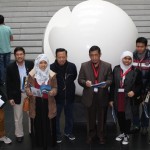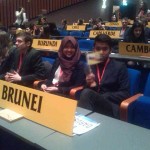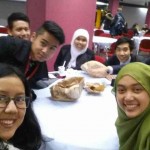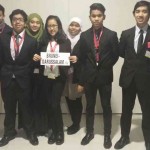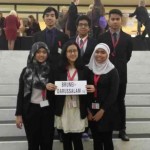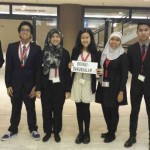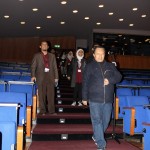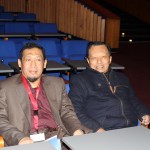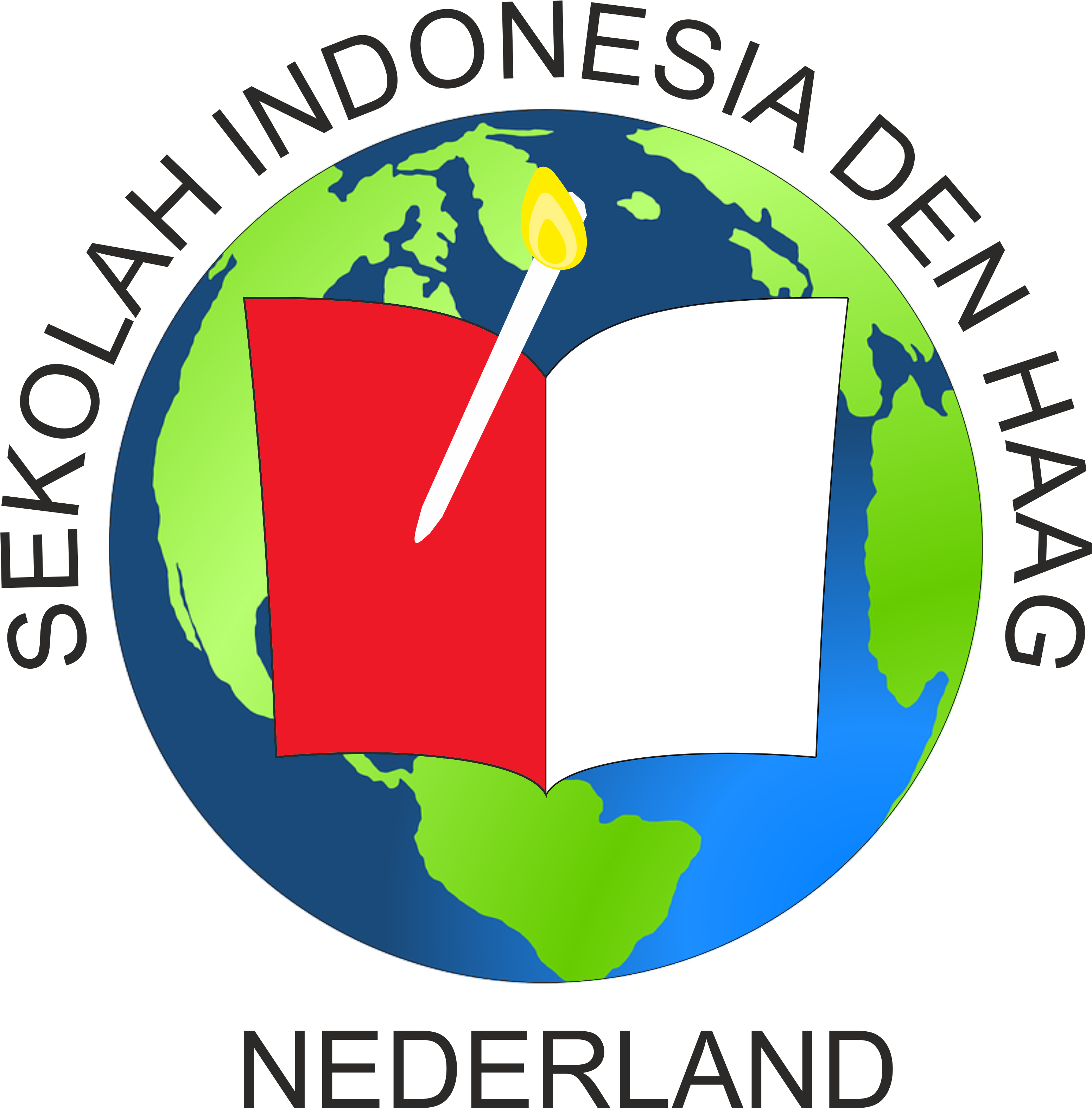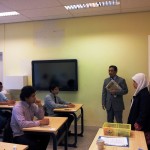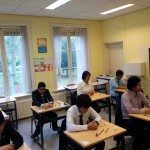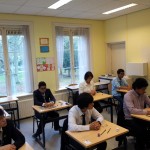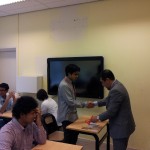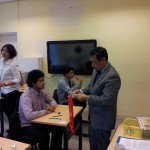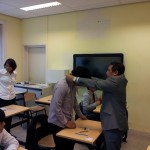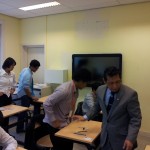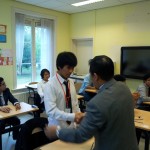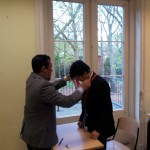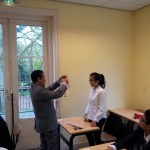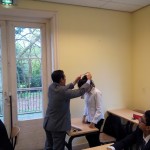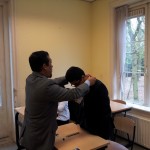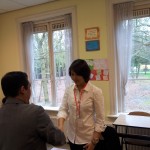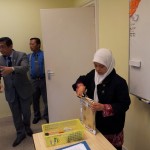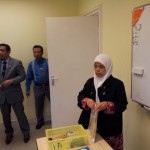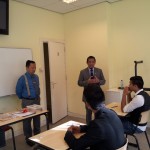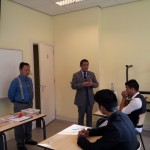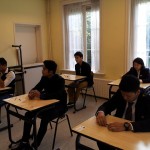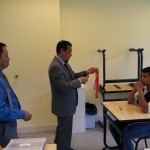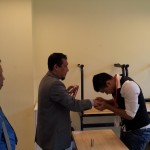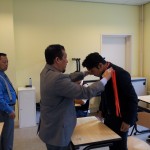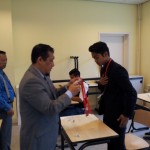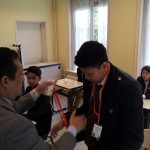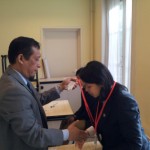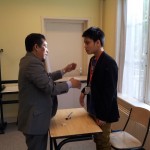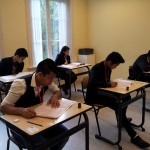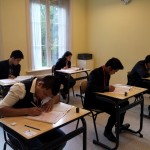The Hague, 31 January 2014 — Sekolah Indonesia Nederland (SIN Wassenaar) assigned 7 high school students to take part in The Hague International Model United Nations (THIMUN), 26-31 January 2014. The delegates was the only representative of Indonesia, who played the simulated role of Brunei Darussalam diplomats at the United Nations. This year’s theme was ‘Africa –Transformations and Challenges Ahead’.
During the event, the participants were playing role as diplomats representing a particular country or an international organization in such simulated sessions of the United Nations committees such as the General Assembly, Special Conference, and Security Council together with thousands of other students from different countries. The seven students of SIN Wassenaar were divided into three UN parts in the General Assembly, the UN Commission and the Special Conference to address several different issues covering political, economic, social, cultural, and environmental topics.
SIN Wassenaar delegation at THIMUN 2014 consisted of 1 student from grade one, 3 students from grade two and 3 students from grade three. They were Humam Syauqi Dawaa (16) who was active in the Special Conference Sub-Commission 1 focusing on African development; Royyan Abdullah Dzakiy (17) in the General Assembly 4 on Special Political and Decolonization; Hagar Masae (17) in the Disarmament Sub-Commission 1; Ardiana Callista Prima (19) in the Human Rights Sub-Commission 1; Nadhira Zhafirany in the General Assembly 1 focusing on Disarmament and International Security (Nadhira was also selected as the Ambassador of Brunei Darussalam for the conference); Nafil Rabbani Attamimi (17) in the General Assembly 2; and Bilal Masae (19) in the General Assembly 3 concentrating on Social, Humanitarian and Cultural. The students were trained by Mrs. Safreni and directed by Mr. Budi Wahyu Rianto, SIN Wassenaar THIMUN Director 2014.
THIMUN, which was first held in 1968, is a UN model participated by the high school level students aiming to educate the participants about contemporary events, international relations, diplomacy and the United Nations agenda. THIMUN is very dynamic since students as delegation should understand international issues, and be able to convey their ideas to resolve the issues. THIMUN provides participants the opportunity to meet and mingle with colleagues from countries with different cultures, discussing seriously international issues, within collaborative atmosphere. The discussion of international issues at THIMUN required sufficient understanding of the facts so that delegates can submit and defend their ideas in formulating resolutions.
Besides mastering global issues in the world, the delegation also had to learn the profiles of the country they presented and also what contribution the country could give to deal with a conflict.
The student’s participation in the international youth activities is an opportunity to train communication skills especially in English and critical thinking in addressing an issue that involves many parties, in addition to expanding relationships, insights and perspective. They are trained to listen, make critical decisions with a rational basis, and express thoughts in an official way.
The involvement of youth in the UN model fosters social sense to consider problems faced by others and to think for their future together. The leadership is also built. Moreover, they have to speak in front of audience. It builds self-confidence.
During the preparation period, the students have conducted research on issues that they want to present and therefore they have enough information besides data as the basis to defend opinions and prepare a resolution. In addition, the preparation also includes the ability of persuasion.
Like the negotiation process among countries at the international level that requires approach and lobby, THIMUN participants who have been put in a delegation group must also do the same (approach and lobby) in order to obtain support for the proposed resolution and finally voted during the UN General Assembly session.
To SIN Wassenaar the participation in THIMUN has become an ‘iconic’ annual programme, which is in principle, open to every student. Yet, there has been a tight selection process based on English ability, concepts and knowledge on international issues, personal interest and strong moral characters to seek a solution to the problem of the people and for justice.
(Safreni & Wieke Libertina)
